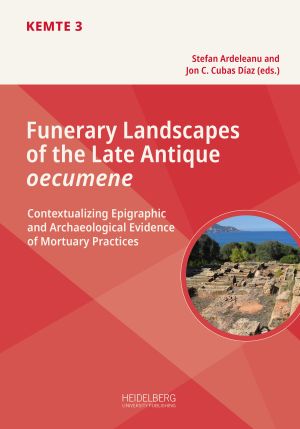How to Cite
License (Chapter)

This work is licensed under a Creative Commons Attribution-ShareAlike 4.0 International License.
Identifiers (Book)
Published
Les épitaphes en leur “milieu”
Remarques à partir du matériel épigraphique de l’Aquitaine tardo-antique et alto-médiévale
Abstract Based on the study of some Late Antique and Early Medieval epitaphs from Southwestern Gaul, the article asks the following question: How did inscriptions shape funerary spaces and how did they work/act within these spaces, if we consider them as spaces of social practices? In other words, what do they ‘offer’ (if we consider the concept of ‘affordance’)? It is therefore no longer appropriate to determine the epigraphic gesture, neither appreciate its communicative value, but to analyze dynamics driven by epitaphs in the experience and the making of place, in this case the necropolis, insofar it physically inhabits it. In which way do epitaphs affect their surrounding space, what does this space, because it is visited, affect it in terms of uses and meanings? How are the relationships set up between the epitaph and its environment and all that composes it (other tombs, visitors, landscape) over time? In this respect, archaeological approach is an adequate mode of investigation since it allows looking back at the evolution of space and its component over time.
After a short presentation of epigraphic habits in the Late Antique provinces of Aquitania and Novempopulania in order to fit epitaphs into their local writing context, the paper focusses on spatial dynamics at work in the funerary space as a landscape and a place of experience, drawing on few cases study from Aquitania. If the whole fails to capture the portrait of one specific funerary epigraphic habit in Aquitania, it raises the question of processes both visual and kinetics in changing the perception of a funerary space to a written place, and so the role played by inscriptions in the making of ‘placeness’. Thus, funerary inscriptions from Southwestern Gaul are an opportunity to explore a way of approaching the epigraphic material in its milieu, that is, an ecology of inscriptions.
Keywords Late Antique epigraphy, South Western Gaul, necropoleis, visuality, motions, placeness, burial practices






